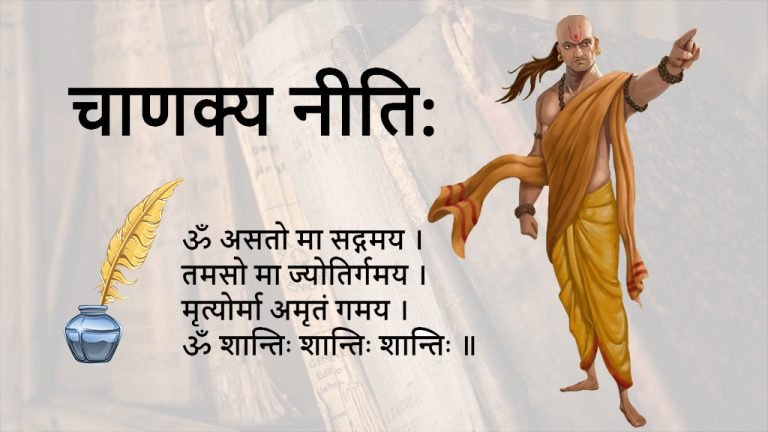Chanakya is considered the pioneer of the field of Political science and economics in India, and his work is thought of as an important precursor to classical economics. Chanakya the Great Economist was an ancient Indian polymath who was active as a teacher, author, strategist, philosopher, economist, jurist and royal advisor. He is traditionally identified as Kauṭilya or Vishnugupta, who authored the ancient Indian political treatise, the Arthashastra, a text dated to roughly between the fourth century BCE and the third century CE. The Arthashastra continued to exert considerable influence after the reign of Ashoka but then disappeared and was considered lost until it was discovered in 1905 CE by the Sanskrit scholar Rudrapatna Shamasastry (l. 1868-1944 CE). Rudrapatna Shamasastry published the work in 1909 CE and then translated it into English and published that version in 1915 CE which brought it greater attention.
Chanakya’s Arthashastra which is very famous by the name of Niti Shastra, describes 17 chapters and 342 sutras written in it. For details visit our site https://digitalksp.com/category/education/.
Chanakya NITI in English -4th Chapter
- These five: the life-span, the type of work, wealth, learning and the time of one’s death are determined while one is in the womb.
- Offspring, friends and relatives flee from a devotee of the Lord: yet those who follow him bring merit to their families through their devotion.
- Like fish, tortoises and birds rear their infants by looking, caring and touching them respectively so does good company with respect to human beings. A good company plays an important role in making a person a noble one.
- As long as your body is healthy and under control and death is distant, try to save your soul; when death is imminent what can you do?
- Learning is like a cow of desire (Kamdhenu),yields in all seasons. Like a mother, it feeds you on your journey. In foreign land it protects like a mother and helps oneself. Therefore learning is a hidden treasure.
- A single son endowed with good qualities is far better than a hundred devoid of them. For the moon, though one, dispels the darkness, which the stars, though numerous, can not.
- A still-born son is superior to a foolish son endowed with a long life. The first causes grief for but a moment while the latter like a blazing fire consumes his parents in grief for life.
- Residence in the village of wicked persons, service to a low family, un nourishing food, foul speaking wife, foolish sons, widowed daughter burn a man continuously even without fire.
- What good is a cow that neither gives milk nor conceives? Similarly, what is the value of the birth of a son if he becomes neither learned nor a pure devotee of the Lord?
- When one is consumed by the sorrows of life, three things give him relief: offspring, a wife, and the company of the Lord’s devotees.
- Kings speak for once, men of learning once, and the daughter is given in marriage once. All these things happen once and only once.
- Religious austerities should be practiced alone, study by two, and singing by three. A journey should be undertaken by four, agriculture by five, and war by many together.
- She is a true wife who is clean (suci), expert, chaste, pleasing to the husband, and truthful.
- The house of a childless person is a void, all directions are void to one who has no relatives, the heart of a fool is also void, but to a poverty stricken man all is void.
- Scriptural lessons not put into practice are poison; a meal is poison to him who suffers from indigestion; a social gathering is poison to a poverty stricken person; and a young wife is poison to an aged man.
- That man who is without religion and mercy should be rejected. A guru without spiritual knowledge should be rejected. The wife with an offensive face should be given up, and so should relatives who are without affection.
- Constant travel brings old age upon a man; a horse becomes old by being constantly tied up; lack of sexual contact with her husband brings old age upon a woman; and garments become old through being left in the sun.
- Consider again and again the following: the right time, the right friends, the right place, the right means of income, the right ways of spending and from whom you derive your power.
- For the twice-born the fire (Agni) is a representative of God. The Supreme Lord resides in the heart of His devotees. Those of average intelligence (alpa-buddhi or kanista-adhikari) see God only in His srimurthy, but those of broad vision see the Supreme Lord everywhere.






